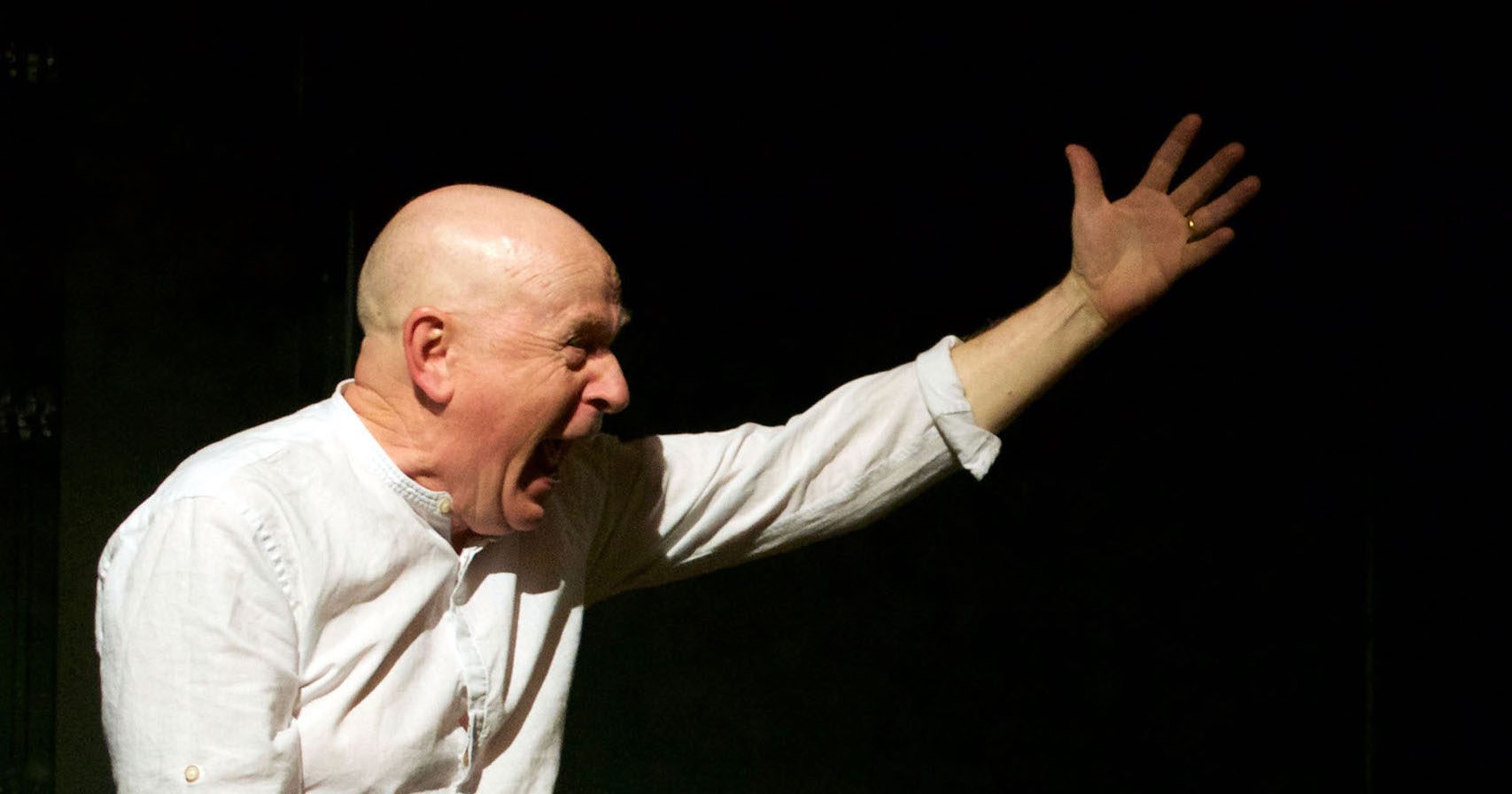On TAP brought together three improv performers, Andrew Morrish, Tony Osborne, and Peter Trotman for a unique performance. Billed as part of FORM Dance Projects‘ IDEA’25 festival (Independent Dance Exchange Australia), the show catches unassuming audiences off guard with theatrical improvisation, creating an unexpected but definitely entertaining and even thought provoking experience.
The three improvisers each brought different sensibilities as they directly addressed the audience in 17-minute monologues whilst ensuring they danced enough for “the contract”. Morrish stood out as particularly hilarious yet philosophical – delivering the memorable line “you are at the front of your life”. A line that captures a more serious and inspirational side, complementing the display of spontaneity. Osborne authentically and intimately speaks on the challenges of ageing and movement, whilst confidently utilising the stage. Commendably, Trotman committed most fully to the dance ‘requirement’ of the show with a sizeable number of grand allégro-esque leaps (large travelling jumps in ballet).
What made the performance especially clever was how the movements and gestures employed while these three older men ‘rambled’ absolutely mirrors modern dance. Their improvisation served as fair and insightful commentary on what dance looks like to non-dancers. This unintentional meta-commentary added depth for those familiar with contemporary dance while remaining accessible and humorous for general audiences.
However, On TAP suffered from some repetition that reduced audience engagement. The recurring refrain of “[we have to dance] it’s in the contract” became tiresome by the end, sparking awkward laughter as the show progressed. The three improvisers were also similar, as one honestly remarked that they were “three old men”. Whilst they are all seasoned masters, impressively sharing various philosophical musings in an entertaining manner, more variety in style, material or personalities would have added to the overall performance. The structure easily risked repetition between performers. There was a lack of a unified finale, so also it felt like a missed opportunity given the calibre of performers and subsequently left the show feeling incomplete.
On TAP delivered an enjoyable hour of improvisation that celebrated spontaneity and physical movement. The show works best for audiences already interested in live performance and looking for something different from traditional dance or theatre. Audiences can definitely leave with an appreciation of the challenge of continuous ad-libbing – both verbally and physically. While it may not convert skeptics of improvisation, it successfully demonstrates the wit and skill of these three performers, even if they are, admittedly, rambling – but in a good way.
